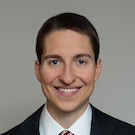Surgical Education and Simulation Research Fellowship
Contact Information
Surgical Education and Simulation Research Fellowship
55 Fruit Street
Boston,
MA
02114
Email: mghserg@mgb.org
Accessible
Near Public Transit
Explore This Fellowship
About the Program
The Surgical Education and Simulation Research Fellowship in the Massachusetts General Hospital Department of Surgery is dedicated to training fellows to be academic surgical leaders in the field of surgical education, research and simulation.
This program also consists of close relationships with the Codman Center for Clinical Effectiveness, the Procedural Learning and Safety Collaborative and the Massachusetts Institute of Technology. These relationships, along with others in Boston and across the country, have helped fellows pursue research projects in a variety of areas that bridge education, outcomes and technology.
This program can be one to two years in length depending on the fellow’s career aspirations and available financial resources.
As part of the Consortium of American College of Surgeons (ACS) Accredited Institutes, this fellowship program consists of high-quality formal didactic and hands-on training with regular feedback and mentorship.
Goals
Graduates of the Surgical Education Research and Simulation Fellowship will be able to:
- Conceive, develop and run simulation-based training and evaluation modules
- Create, administer and evaluate new simulation programs/centers
- Critically appraise and/or conduct simulation-based medical education research
- Describe the theoretical and scientific foundations of simulation-based medical/surgical education
Research Areas
Fellows will be able to learn about various research topics, including:
- Adult learning theories
- Assessment of education outcomes
- Emotional intelligence development
- Enhancing medical student exposure to surgery
- Linking resident education to patient outcomes / satisfaction
- Machine learning and Artificial Intelligence (AI)-based assessment
- Resident burnout prevention
- Resident clinical prioritization skills
- Simulation-based skills training
- Video-based education and coaching
Coursework
Fellows are expected to publish at least two manuscripts during the program.
The didactic training includes coursework through the Center for Medical Simulation Instructors Course and the Harvard Macy Institute in the following courses:
- A Systems Approach to Assessment
- Leading Innovations in Health Care and Education
- Program for Educators in Health Professions
Specific information about each of these courses can be provided by request.
Curriculum
The Surgical Education and Simulation Research Fellowship at Mass General provides the fellow with didactic and mentored training that encompasses:
- Administration and leadership
- Curriculum design and evaluation
- Educational theory
- Faculty development
- Learner and program evaluation, and
- Technology support and simulation.
Our existing simulation-based education fellowship curriculum is particularly robust and culminates in a Teaching and Learning Certificate with a Concentration in Healthcare Simulation which is offered by our affiliated Mass General Institute of Health Professions (a graduate school founded by Mass General).
All fellows will complete the certificate program, which includes coursework at the Institute for Medical Simulation (Center for Medical Simulation in Cambridge, MA) and the Harvard-Macy Institute (Program for Educators in the Health Professions). Depending on funding levels, there is also the possibility that fellows will be able to obtain a master’s in health professions education through the Mass General Institute of Health Professions.
Mentored training in the above cognitive elements as well as human/fiscal resource management and research design/methodology will be delivered through bi-weekly meetings with the Fellowship research group and monthly meetings of institution-wide surgical education research meetings.
The fellow will have an opportunity to work very closely with Roy Phitayakorn, MD, Sophia McKinley, MD, MEd, and Dandan Chen, PhD, to design and complete their own individual research project that emphasizes at least one of the cognitive elements mentioned above. The simulation specialists will also mentor the fellow so that the fellow is comfortable managing the technical elements of a successful simulation session including role playing/improvisation and technical troubleshooting.
How to Apply
Requirements
Applicants must either:
- Have an MD and be enrolled or have completed a residency in any surgically-oriented field, or
- Be enrolled in or have completed a PhD program in a relevant field (including but not limited to psychometrics, education and computer science).
- Independent funding is required to join the fellowship program.
To Apply
To apply for the Surgical Education and Simulation Research Fellowship at Mass General, please send a cover letter, Curriculum Vitae and letter of recommendation from a supervisor (Program Director, Dept Chief or equivalent) to the email below:
Application deadline is November 30.
Leadership
- Dandan Chen, PhD
Health Professions Education Researcher - Sophia McKinley, MD, MEd
Surgical Oncologist, Mass General - Roy Phitayakorn, MD
Associate Surgeon, Mass General
Associate Professor of Surgery, Harvard Medical School
Collaborators
- Charu Paranjape, MD, MBBS
- Joy Moses
- Mike Healy, EdD
- John Mullen, MD
- Lara Trager, PhD
- Rich Hodin, MD
- Keith Lillemoe, MD
- David Chang, MD, MPH
- Michael Sampson
- Sonia Cohen, MD, PhD
Current Fellows
 Marcelle Altshuler, MD
Marcelle Altshuler, MD
Medical School: Georgetown University School of Medicine
Residency: Brigham and Women’s Hospital
Marcelle Altshuler is a Neurosurgery Resident at Brigham and Women's Hospital and Boston Children's Hospital, Harvard Medical School. She completed her medical education at Georgetown University School of Medicine, graduating as a Health Justice Scholar, and earned a Bachelor of Science degree in Neuroscience with a minor in Philosophy from the University of Florida. Dr. Altshuler has published in peer-reviewed journals and presented at various conferences, focusing on neurosurgery topics including epilepsy, minimally invasive spine surgery, and vascular neurosurgery. Dr. Altshuler demonstrated her passion for research and education as a Graduate Teaching Assistant for Functional Human Neuroanatomy at the University of Florida and as an Education Coordinator for the American Society of Addiction Medicine. Throughout her residency, Dr. Altshuler actively organizes teaching and mentoring opportunities for junior residents and medical students, while also spearheading innovative educational initiatives, notably a simulation-based skull base lab curriculum that significantly enhances the surgical skills of neurosurgery residents.
 Tiffany Bellomo, MD
Tiffany Bellomo, MD
Medical School: University of Michigan Medical School
Residency: Vascular Surgery, Massachusetts General Hospital
Tiffany is excited to join the surgical education fellowship and work towards improving the quality of resident education. Her first experience with resident education was in medical school, where she studied different aspects of struggling surgical residents from the perspective of program directors. During her residency, she designed and implemented a successful training program for ultrasound-guided femoral artery access. In the surgical education fellowship, Tiffany will focus on creating attending-specific surgical step resources and developing patient evaluation methods for resident performance. These projects aim to enhance the quality of surgical training and improve educational outcomes for residents.
 Claire Ferguson, MD
Claire Ferguson, MD
Medical School: SUNY Downstate Medical Center
Residency: General Surgery, SUNY Downstate Medical Center
Claire is a general surgery resident entering a two-year research fellowship with the MGH SERG program and the Downstate iNSPIRe initiative. She grew up in Massachusetts prior to attending SUNY Downstate for medical school and continued in their general surgery residency program. Her education experience includes leading the resident simulation curriculum and collaborating with the medical school to revamp the surgical simulation education for clerkship students. Her interests include surgical simulation education, leadership development, and wellness. She is honored to be joining the SERG program to develop as a surgical educator and aspires to contribute to surgical simulation education in the MGH community.
 Shaghayegh (Shay) Sabbaghan Kermani, MD
Shaghayegh (Shay) Sabbaghan Kermani, MD
Medical School: Iran University of Medical Sciences
Dr. Shaghayegh (Shay) Sabbaghan Kermani graduated from Iran University of Medical Sciences in December 2020. Driven by her commitment to surgical education and research, Dr. Sabbaghan Kermani has been accepted as a postdoctoral research fellow in the SERG program (Surgery Education Research and Simulation Fellowship) at Massachusetts General Hospital. In this role, she focuses on advancing surgical education methodologies, exploring innovative simulation techniques, and conducting research to enhance surgical training and patient care.
 Michael Kochis, MD, EdM
Michael Kochis, MD, EdM
Medical School: Harvard Medical School
Residency: Massachusetts General Hospital
Dr. Michael Kochis is a general surgery resident at MGH. His interest in medical education arose from his experience in the first cohort of students to undergo a new curriculum at Harvard Medical School. He earned a master’s degree from the Harvard Graduate School of Education, and his scholarship has earned awards from the Association for Academic Surgery and Association for Surgical Education. He grew up in Pittsburgh, PA and attended Princeton for his undergraduate studies.
 Chase Marso, MD
Chase Marso, MD
Medical School: Harvard Medical School
Residency: General Surgery, Massachusetts General Hospital
Chase is a general surgery resident at MGH. He grew up in Brandon, SD, graduated with a BA in biology from Augustana University in Sioux Falls, SD, and then moved to Boston to attend Harvard Medical School. He plans to pursue fellowship training in cardiothoracic surgery. During his time as a research fellow, he is also pursuing an MHPE at the MGH Institute of Health Professions. His surgical education interests include improving resident evaluation, robotic training, and patient education.
 Lucy Nam, MD
Lucy Nam, MD
Medical School: Johns Hopkins University School of Medicine
Residency: General Surgery, Massachusetts General Hospital
Lucy has finished up three years of general surgery training and currently in her academic research years. She has completed his undergraduate training at Harvard University and medical school at Johns Hopkins University School of Medicine. Dr. Nam has a myriad of interests including patient education, improving patient-physician communication, illustrating and designing easy-to-convey medical concepts, and studying postoperative outcomes. She is looking forward to getting involved with all the excellent work surgical education group this upcoming summer.
 Rebecca Tang, MD
Rebecca Tang, MD
Medical School: University of Pennsylvania, Perelman School of Medicine
Residency: Massachusetts General Hospital
Rebecca Tang is a third-year resident at the Massachusetts General Hospital, with clinical interests in
abdominal surgical oncology and colorectal surgery. She will be pursuing research in surgical education and disparities in surgical outcomes. Within surgical education research, she will be investigating technical challenges faced by left-handed surgeons and trainees with small glove sizes.
 Jonah Thomas, MD, MS
Jonah Thomas, MD, MS
Medical School: Cleveland Clinic Lerner College of Medicine of Case Western University
Residency: General Surgery, Massachusetts General Hospital
Jonah grew up in Chandler, AZ, and attended Barrett, the Honors College at ASU for undergrad, then earned a Master's in Biomedial Engineering from ASU. For medical school, he attended the Cleveland Clinic Lerner College of Medicine at Case Western Reserve University. During medical school, Jonah conducted research in abdominal wall reconstruction and surgical education. As a new SERF fellow, he aims to explore the transition from undergraduate to graduate medical education and enhance the literature on surgical subinternships.
Publications
- Rashid, G., Pradarelli, A., Chu, J., Chang, D., Nelson, B., Mullen, J., & Palamara, K. (2022). The Experience of Academic Physician Coaches in a Professional Development Coaching Program. Global Surgical Education-Journal of the Association for Surgical Education, 1(1), 63
- Rashid, G., Jogerst, K., Healy, M., Park, Y., Petrusa, E. (2023). Are Your Interpretations of the Assessment’s Results Valid? An Introduction to Validity Theory for the Surgical Educator. Resources in Surgical Education
- Palenzuela D. (2022). What Does It Mean to Be a “Good Intern?” American College of Surgeons. Resources in Surgical Education
Presentations
- Palenzuela D, Phitayakorn R. What Does It Mean to Be a “Good Intern?” Association for Surgical Education Annual Meeting. “Shark Tank” Oral Presentation. San Diego, CA. April 13-15, 2023
- Palenzuela D, Pradarelli A, McKinley S, Moses J, Phitayakorn R. Pre-clinical Social Learning Immersion Experiences Improve Medical Student Perceptions of Surgery. 18th Annual Academic Surgical Congress. Oral Quickshot Presentation. Houston, TX. Feb 7-9, 2023
- Cron DC. Implementation of an Academic Development Rotation for Surgery Residents. Thinking Out of the Box – Oral Presentation. Association for Surgical Education Annual Meeting. San Antonio, TX. May 2022
- Cron DC, Coe T, Secor J, Guyer R, Brownlee S, Phitayakorn R, Mullen J, Lillemoe K, Liao E, Boland G. Implementation and Evaluation of an Academic Development Block Rotation for Surgery Residents. Oral Presentation. 18th Annual Academic Surgical Congress. Houston, TX. February 2023
- Whaley, Z, et al. Stakeholder Needs from a New Surgery Vice Chair of Education Position. Academic Surgical Congress; February 2023; Houston, TX
- Whaley, Z, et al. Mindsets in General Surgery Residents and Faculty. Association for Surgical Education Annual Meeting; April 2023; San Diego, CA. (Accepted)
- Whaley, Z, et al. Promoting Patient and Family Perceptions of Resident Involvement in Surgical Care (in submission)
Contact Us
The Surgical Education and Simulation Research Fellowship in the Massachusetts General Hospital Department of Surgery provides formal training in principles and methods of surgical education and research.
